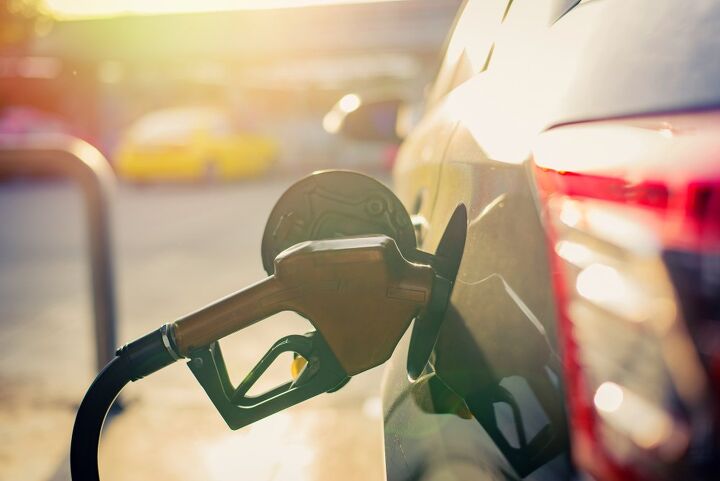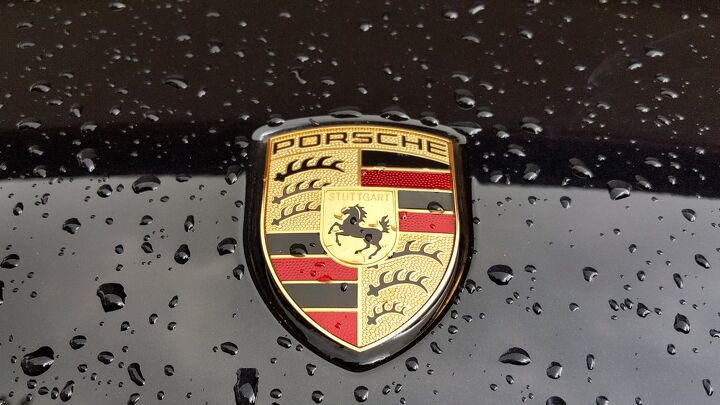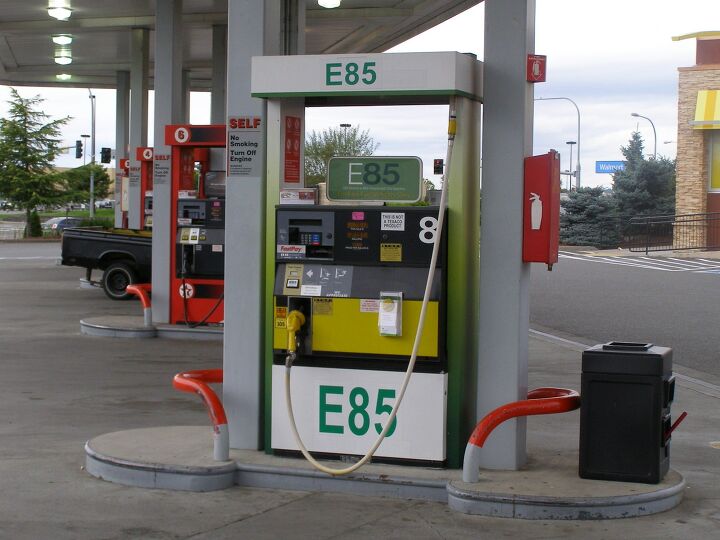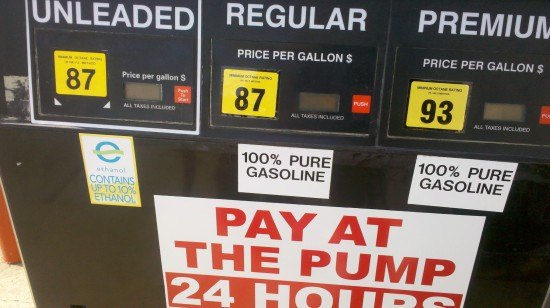#biofuels
Toyota Partners With Exxon to Test Low-Carbon Fuels
Toyota Motor Corp has announced it will be partnering with Exxon to develop a low-carbon fuel that can be used in gasoline engines. Considering that governments around the world are introducing stringent carbon emission standards, this seems like a worthwhile endeavor. However, Toyota also likes to throw spaghetti at the wall to see what sticks, and previous attempts to deliver on similar concepts have fallen flat.
Porsche Investing in Synthetic 'eFuels'
Despite Porsche transitioning to all-electric vehicles with the rest of Volkswagen Group, the brand believes that its customers will still want to drive around vintage gasoline models even after the European Union has banned them into oblivion. This is especially important for the iconic 911, which the company has repeatedly hinted would be one of the last models in its lineup to ditch internal combustion.
With countless racing series already devoted to classic examples of the car, Porsche wants to ensure there’s a solution for motorists who want to do more than pet theirs in a silent garage should the government introduce even stricter standards for automobiles than what’s already coming down the pike. So it’s revisiting alternative fuels — specifically a carbon-neutral alternative to gasoline that would work in traditional engines — from Chilean e-fuel producer Highly Innovative Fuels, with whom it’s already investing.
New Study Claims Biofuels Harm the Environment Worse Than Fossil Fuels
A new study from the University of Michigan adds (bio)fuel to the growing backlash against supposedly clean and green fossil fuel substitutes.
The study claims that the environmental benefits of ethanol and biodiesel — championed by both the federal government and the lucrative biofuel industry — are based on completely false assumptions, the Detroit Free Press reports.
Virginia Tech Transforms Corn Stover Into Hydrogen
Just as corn kernels have found their way into gas tanks, corn stover could soon end up in fuel cells.
Republican Presidential Hopefuls Discuss Ethanol In Iowa
A handful of Republican presidential hopefuls converged upon Iowa last weekend to discuss the pros and cons of ethanol.
Feinstein-Toomey Bill Seeks To Push Other Biofuels Over Corn Ethanol
With one attempt shot down thus far, two U.S. senators are issuing a standalone bill to reduce the use of corn-based ethanol at the pump.
T&E: First-Gen Biofuel Use In EU Face 6 Percent Cap By 2020
Much like in the U.S., biofuel is an ongoing concern in the European Union, where those opposed recently gained a victory in restricting its use.
EPA Sets Lower 2013 Cellulosic Ethanol Use Requirement
Earlier this week, the Environmental Protection Agency put in place 2013 requirements for cellulosic ethanol for automotive use in the United States at 810,000 gallons, an amount far short of the 1 billion gallons Congress desired seven years earlier when the Renewable Fuel Standard Act came into force.
Where Are Our Green Car Priorities?
As a relatively pragmatic person who generally chooses the imperfect-yet-achievable path rather than agonizing over the perfect-but-unattainable goal, this chart [from a fascinating Boston Consulting report, in PDF here] frustrates me. I understand why Americans choose hybrid-electric cars as their most favored “green car” technology, but from their it gets fairly crazy. EVs are fantastic on paper, but in the real world they’re still far too expensive, their batteries degrade, they have limited range, oh and did I mention that they’re freaking expensive? Biofuels, America’s third-favorite “green” transportation technology can be fantastic in certain limited applications, but the ongoing ethanol boondoggle proves that it will never be a true “gasoline alternative.” Finally, at the bottom of the list, Americans grudgingly accept only relatively slight interest in the two most promising short-term technologies: diesel and CNG. Neither of these choices is radically more expensive than, say, a hybrid drivetrain and both are considerably less expensive and compromised than EVs at this point. So why are we so dismissive of them?
Senate Votes To Repeal Ethanol Tax Credits
Cracks continued to in the ethanol industry’s once-impregnable political vanguard, as the San Francisco Chronicle reports that the Senate has voted to roll back the Volumetric Ethanol Excise Tax Credit (VEETC) as well as import tariffs on foreign-produced ethanol. This rollback of multi-billion-dollar ethanol credits failed earlier in the week, when the Detroit News reports automakers came out in opposition of a bill that would have required that 95% of all cars built in the US be capable of running 85% ethanol by 2017. The Senate did fail to pass a repeal of a government ethanol blending mandate that underpins the VEETC, however, and funding is moving forward for ethanol blending pumps. Still, the Senate’s repeal of VEETC alone means taxpayers could save over $5b per year on subsidies, and as one expert puts it
“Looks like we’re going to be relying on the biofuels mandates to make sure blenders use biofuels, rather than bribing them to use it with $6 billion,” [Bruce Babcock, professor of economics and the director of the Center for Agricultural and Rural Development at Iowa State University] said.
In fact, Babcock thinks killing the subsidy could help ethanol because it would come out from the stigma of being a subsidized industry. And removing the subsidy may strengthen support for the mandate, and the tariff on imports.
Over to you, House of Representatives…
Ethanol In Germany: Education Is Not The Answer
TTAC has paid close attention to the fortunes of ethanol in the United States, where grossly wasteful subsidies have forced the corn-derived fuel into the fuel supply in growing percentages, drawing backlash from small but vocal portions of the population. But much of the ethanol ire is directed at higher blends like the recently-approved E15 and the increasingly-unpopular E85 mixtures. Meanwhile, most Americans regularly fill up their tanks with E10, which has become standard at pumps across the nation. But in Germany, where E10 was only just introduced, people are rejecting the low-ethanol blend that even the most vocal American ethanol opponents use every day. Initially, the biofuel industry in Germany blamed a lack of education for suspicion of E10, but according to Autobild, some 75 percent of German drivers now know whether their vehicle takes E10 (and most do)… but still, only 17 percent actually chose E10 for their last fill-up. And only 39 percent who know for a fact that their car can take E10 have ever used the ten-percent ethanol fuel. Why? Despite the high level of education, 52 percent of respondents still feared motor damage from the ethanol. Another 50 are opposed to “filling up with food.” Sometimes the more you know about something, the less you like it.
Bipartisan Bill Seeks To End Cornerstone Ethanol Subsidy
Yesterday evening I directed some ire at President Obama’s continued reliance on ethanol as a major plank of his do-nothing transportation/energy agenda, noting
That extra money for 10,000 E15-capable pumps? That’s because no gas station owner will pay to install a pump for a kind of fuel that only cars built since 2001 can use… and which the auto industry has tried to ban. And why E15 in the first place? Because blenders can’t sell enough E10 to blend the government-mandated amount of ethanol and collect their $6b this year in “blender’s credits” to do so. A subsidy to support a subsidy which in turn props up yet another subsidy (I may have missed a subsidy in there somewhere). You can’t make this stuff up.
The “cornerstone” subsidy that all other ethanol subsidies support is the Volumetric Ethanol Excise Tax Credit, or VEETC, or “blender’s credit,” a $6b per year subsidy that directs 45 cents to refiners for every gallon of ethanol they blend with gasoline. The VEETC nearly died in December’s lame duck session, only to be revived as a way to buy votes for the President’s tax policy. Now, however, The State Column reports that a bipartisan Senate bill has been introduced that would eliminate both the VEETC and import tariffs on foreign-made ethanol. And with a rash of bad news coming out about ethanol, this could just be the opportunity to kill this wasteful government subsidy with fire.
What's Wrong With This Picture: Fixing Transportation Edition
President Obama devoted his weekly address to energy and transportation policy this week, speaking to the nation from an Allison hybrid bus transmission plant in Indiana. A White House blog post accompanying video of the President’s speech included a large infographic on “The Obama Energy Agenda And Gas Prices,” the transportation-oriented section I’ve excerpted above. This one section is actually a fairly good representation of Obama’s auto-related energy policy preferences, and illustrates why I often find myself criticizing the president here at TTAC.
GAO: Government Ethanol Rules Actually Increase Gasoline Use
A massive study by the Government Accountability Office into “Opportunities to Reduce Potential Duplication in Government Programs, Save Tax Dollars, and Enhance Revenue” has turned up an interesting finding. It seems that the government’s desire to buy more “alternative fuel vehicles” (AFVs) may actually increase the amount of gasoline used by government fleets. Why? Because agencies largely buy E85 ethanol-powered vehicles to fulfill their AFV requirements, and there aren’t enough E85 pumps to actually fuel the fleet, forcing agencies to obtain waivers to buy regular gasoline. Hit the jump for the report’s full findings on this, the latest unintended consequence of America’s ongoing ethanol-subsidy boondoggle.
New Ethanol Bill Faces Automaker Resistance
How things change in a few years! Just a few short orbits of the sun ago, automakers like GM were some of the biggest boosters of ethanol subsidies. Now, the Detroit News reports
The Alliance of Automobile Manufacturers – the trade association representing General Motors Co., Ford Motor Co., Chrysler Group LLC, Toyota Motor Corp. and eight others – opposes a bill sponsored by Sen. Tom Harkin, D-Iowa, that would require 90 percent of all vehicles to run on E85 – a blend of 85 percent ethanol – by the 2016 model year.
Shane Karr, vice president for government affairs, said the mandate “would cost consumers more than $2 billion per year” for flex fuel vehicles if automakers passed on the full cost “even though consumers will have little or no access to alternative fuels. Therefore, such a mandate is essentially a tax with little consumer benefit.”
In the face of this new opposition, the Renewable Fuels Association has even taken to employing the rhetoric of market economics to justify market-manipulating ethanol subsidies. And it doesn’t seem to be convincing anyone. If anything, Harkin’s bill may just hasten the death of existing subsidies, which are under pressure as both Democrats and Republicans seek to trim the federal budget.























Recent Comments